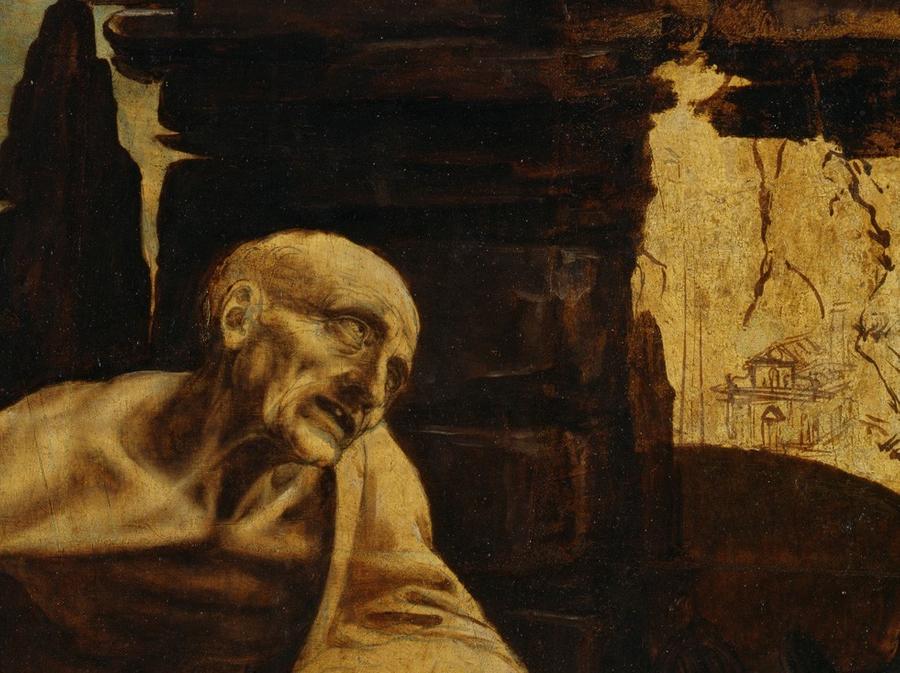Vatican Museums Loan an Intriguing Unfinished Masterpiece to the Met to Mark the 500th Anniversary of Leonardo da Vinci's Death
- NEW YORK, New York
- /
- April 29, 2019

To commemorate the 500th anniversary of the death of Leonardo da Vinci (1452–1519), The Metropolitan Museum of Art will display the artist's painting St. Jerome Praying in the Wilderness (begun ca. 1483). A special loan from the Vatican Museums, this monumental, exquisitely rendered painting is in an unfinished state, providing viewers with extraordinary insights into the artist's creative process. Opening July 15, Leonardo da Vinci's St. Jerome will pay homage to one of the most renowned geniuses of all time.

This presentation at The Metropolitan Museum of Art has been organized with the generous collaboration of the Vatican Museums and the support of its director, Dr. Barbara Jatta.
"We are thrilled to honor Leonardo da Vinci's legacy by displaying this rare and exceptional painting, as it provides an intimate glimpse into the mind of a towering figure of Western art," said Max Hollein, Director of The Metropolitan Museum of Art. "Scholars over centuries have hotly debated, rightly or wrongly, the attribution of certain paintings by Leonardo, but the Vatican Museums' St. Jerome is one of possibly six paintings whose authorship by Leonardo has never been questioned."
Leonardo da Vinci is the prototypical universal genius of the Renaissance. He was trained in Florence as a painter, sculptor, and thinker in the innovative workshop of Andrea del Verrocchio (1435–1488). Leonardo was principally active in Italy—in Florence, Milan, and Rome—and France. He began working on St. Jerome Praying in the Wilderness in Milan around 1483, but kept the painting with him until his death in Amboise, France, on May 2, 1519. The general circumstances of St. Jerome's production are unknown, as are the reasons that Leonardo continued to rework this painting into his mature years without ever finishing it.
The painting represents Jerome (A.D. 347–420), a major saint and theologian of the Christian Church. The scene is based on the story of his later life, which he spent as a hermit in the desert, according to the 13th-century Golden Legend. The penitent Jerome—aged, gaunt, and nearly toothless—kneels in prayerful meditation before a cave in a rocky landscape. Reclining before Jerome is the tame lion, his companion in the desert and a central figure in the story of Jerome's life. The saint's face and gestures convey Leonardo's theories on human physiognomy and the psychology of expression.
In its unfinished state, the painting shows us that Leonardo did not proceed in a wholly disciplined way. He was particularly interested in creating a detailed, anatomically correct under drawing for the saint's ascetic body. The elegant silhouette of the reclining lion seems now especially powerful, because there is almost no modeling beyond the outlines. A close examination of the paint surface reveals the presence of Leonardo's fingerprints, especially in the upper-left portion of the composition. Leonardo used his fingers to distribute the pigments and create a soft-focus effect in the sky and landscape.
At The Met, the painting will be displayed in a gallery by itself, starkly illuminated within an otherwise darkened space in order to heighten the picture's contemplative dimension, which Leonardo intended. The solemn, chapel-like setting will be an evocative nod to the funerals of great Italian artists, which typically featured one of the artist's works as part of the funerary display.

270x400_c.jpg)


















